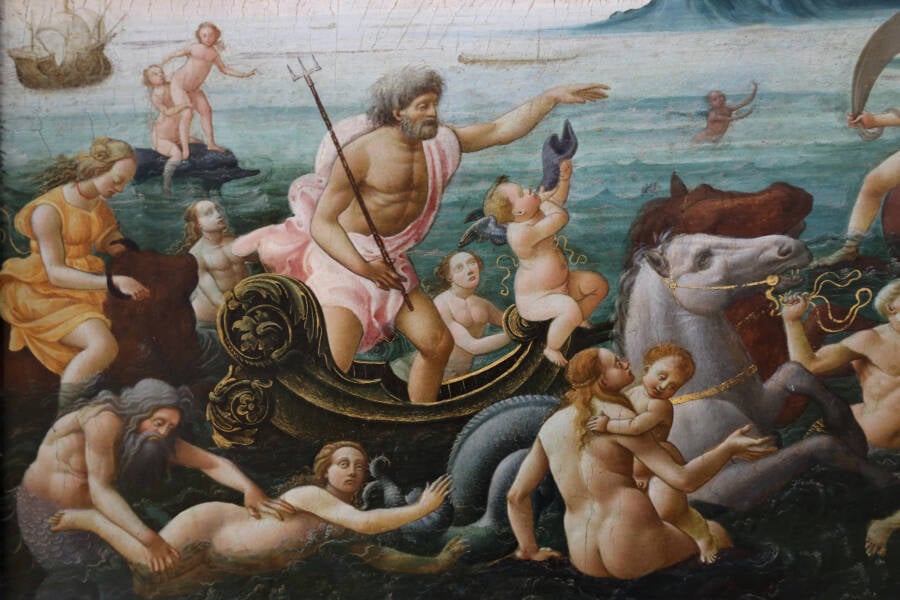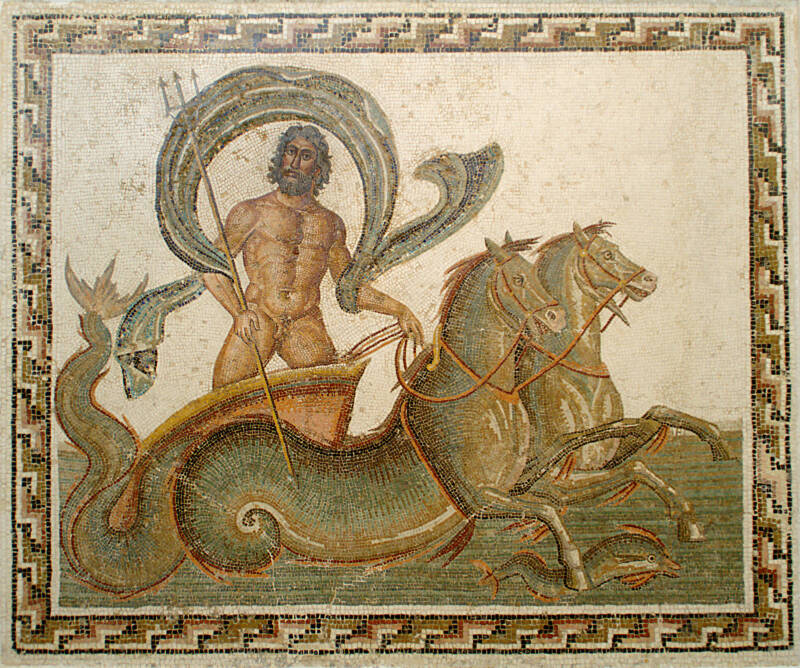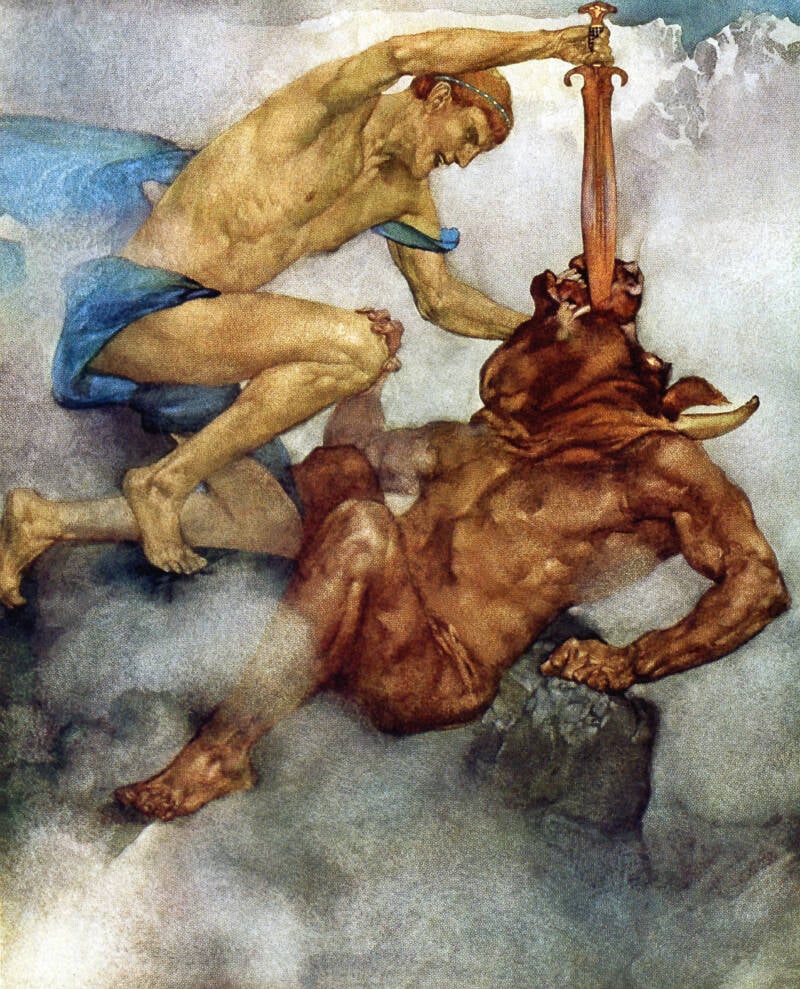The 12 Olympians Of Ancient Greece: Poseidon, God Of The Sea

Lanmas/Alamy Stock PhotoPoseidon (center) the Greek god of the sea, known to the Romans as Neptune.
Poseidon was widely revered as the Greek god of the sea, earthquakes, and horses. Known for his volatile temper and commanding presence, Poseidon’s influence encompasses not just the oceans but also the seismic forces of the Earth and its creatures.
Likewise, Poseidon gifted the first horses to humanity, earning him as much honor as did his protection of the seas.

Public DomainA mosaic tile image of Poseidon, ancient Greek god of the sea, riding two Hippocamps.
Poseidon is often depicted wielding a trident, a powerful three-pronged spear that he used to manipulate water and earth. He could strike the ground to create springs or wield his trident to stir storms and tsunamis — an uncanny ability to both nourish and devastate. One of his most notable myths is the contest with Athena for the patronage of Athens.
He offered the city a saltwater spring by striking the Acropolis with his trident, but lost to Athena’s gift of the olive tree, a symbol of peace and prosperity.
Poseidon’s interactions with both Greek gods and mortals were extensive and varied. Although less promiscuous than Zeus, Poseidon fathered numerous children, both divine and mortal, who often embodied traits similar to their father. Among these was the hero Theseus, who slayed the mighty Minotaur of Crete.

Ivy Close Images/Alamy Stock PhotoThesus, son of Poseidon, slaying the Minotaur.
His worshippers were fervent, especially in coastal cities and islands where his favor was considered crucial for seafarers and fishermen. Significant cult centers included temples and sanctuaries at places like Isthmia, where the Isthmian Games, a pan-Hellenic festival of athletic and musical competitions, were held in his honor. These games were held biennially and included events like chariot races, wrestling, and, surprisingly, poetry contests.
And as with many of the other 12 Olympian gods of ancient Greece, worship of Poseidon regularly involved animal sacrifice, typically of animals associated with the god such as bulls and horses. This was most common in sea-faring communities and fishing villages, where it was most important to gain Poseidon’s favor to ensure safe voyages and bountiful catches.





